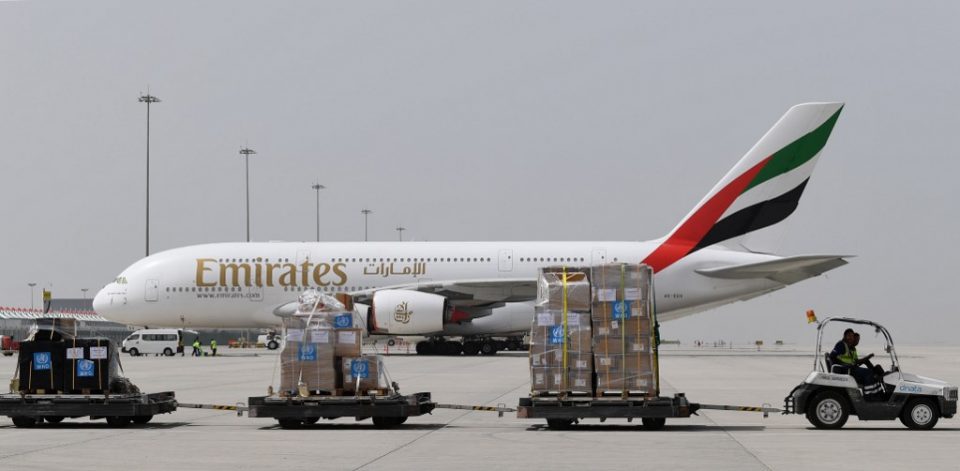
DUBAI, United Arab Emirates (AFP) — Dubai carrier Emirates reversed on Sunday its decision to suspend all passenger flights, shortly after it said it would halt operations from March 25 amid the novel coronavirus outbreak.
The airline said it “received requests from governments and customers to support the repatriation of travellers” and will continue to operate passenger flights to 13 destinations, down from its usual 159.
Emirates will continue to fly to the United Kingdom, Switzerland, Hong Kong, Thailand, Malaysia, the Philippines, Japan, Singapore, South Korea, Australia, South Africa, the United States and Canada.
The announcement was made just hours after a previous statement said the carrier “will have temporarily suspended all its passenger operations” by March 25.
“We continue to watch the situation closely, and as soon as things allow, we will reinstate our services,” said the airline’s chairman and CEO, Sheikh Ahmed bin Saeed Al-Maktoum.
The United Arab Emirates on Friday announced its first two deaths from the COVID-19 disease, having reported 153 infections so far, of which 38 people have recovered.
Maktoum said that, until January this year, the Emirates Group was “doing well” against current financial year targets, but “COVID-19 has brought all that to a sudden and painful halt over the past six weeks”.
“The world has literally gone into quarantine due to the COVID-19 outbreak,” he said.
Emirates also announced it will slash the basic salaries of a majority of employees by between 25 and 50 percent for three months, but will not cut jobs.
“Rather than ask employees to leave the business, we chose to implement a temporary basic salary cut, as we want to protect our workforce,” Maktoum said. “We want to avoid cutting jobs.”
Gulf countries have imposed various restrictions to combat the spread of the novel coronavirus pandemic, particularly in the air transport sector.
The UAE has stopped granting visas on arrival and forbidden foreigners who are legal residents but are outside the country from returning.
© Agence France-Presse







